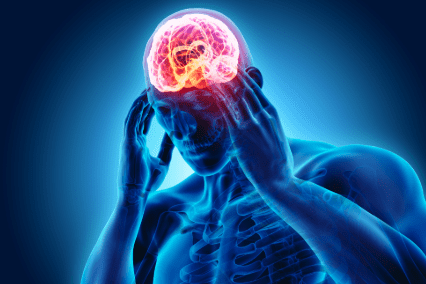Our bodies are remarkably efficient systems, seamlessly coordinating countless processes to keep us alive and healthy. Among these essential tasks, managing water and waste is one of the most vital. This dual function ensures that our organs function optimally, our tissues remain hydrated, and harmful substances do not accumulate to dangerous levels. Understanding how the body balances water and waste provides insight into why staying hydrated and supporting kidney health are so important.
The human body is composed of about 60% water, and this fluid is central to nearly every physiological process. Water transports nutrients, regulates temperature, cushions joints, and serves as a medium for chemical reactions. At the same time, our cells constantly produce waste materials as they carry out metabolic functions. These wastes, if allowed to accumulate, can interfere with cellular processes and overall health. Fortunately, the body has evolved an intricate system to handle both water and waste simultaneously, ensuring that each is properly regulated.
The kidneys play a central role in this balance. These small, bean-shaped organs filter the blood, removing excess water, salts, and metabolic waste products. Each kidney contains around a million tiny filtration units called nephrons. Within a nephron, blood is filtered through a structure called the glomerulus. Here, water, electrolytes, and waste molecules pass into a network of tubules, while larger molecules like proteins and blood cells remain in the bloodstream. This selective filtration ensures that vital substances are retained while unwanted materials are excreted.
After filtration, the body must determine how much water to reabsorb back into circulation and how much to excrete as urine. This decision is influenced by hormones, including antidiuretic hormone (ADH) and aldosterone. ADH, released by the pituitary gland, signals the kidneys to retain water when the body is dehydrated. Aldosterone, produced by the adrenal glands, encourages sodium retention, which indirectly helps the body hold onto water. Together, these hormones allow the body to adjust water output based on hydration status, ensuring that cells maintain proper volume and function.
Waste management goes hand in hand with water balance. When kidneys filter blood, they remove urea, creatinine, and other byproducts of metabolism. Urea, for instance, is produced when the liver breaks down proteins. If not efficiently removed, it can accumulate and become toxic. The kidneys use water to flush these substances out, forming urine that carries waste safely out of the body. This is why adequate hydration is critical: without enough water, waste products can build up, placing stress on the kidneys and other organs.
The intestines also contribute to the body’s water and waste management system. While the kidneys handle soluble wastes, the colon is responsible for eliminating solid waste, or feces. Water absorption in the colon is carefully regulated to ensure stools are neither too loose nor too hard. This process also supports hydration, as the body can reclaim water from undigested food before excretion. Proper intestinal function complements the kidneys’ work, demonstrating how different organs coordinate to maintain internal balance.
Beyond the kidneys and intestines, the cardiovascular system supports this balance. Blood delivers nutrients and collects waste products from tissues, ensuring that the kidneys and liver receive the materials they need for filtration. When the body is dehydrated, blood volume decreases, and blood pressure may drop. This triggers a cascade of responses, including increased heart rate and kidney filtration adjustments, to protect vital organs and maintain equilibrium. In this way, water and waste management is not the responsibility of a single organ but the result of a complex, cooperative network.
Hydration and nutrition play a vital role in supporting these processes. Consuming adequate fluids helps the kidneys filter efficiently, while a balanced diet supplies electrolytes such as sodium, potassium, and magnesium. These electrolytes are essential for nerve and muscle function and for regulating water movement between cells and tissues. Conversely, diets high in processed foods and low in water-rich items can burden the kidneys, making waste elimination less efficient. Drinking water consistently throughout the day supports both hydration and the safe removal of waste products.
The body’s management of water and waste is also influenced by lifestyle factors. Regular physical activity promotes circulation, allowing blood to reach the kidneys and other organs more effectively. Sweat, a byproduct of exercise, serves as an additional mechanism for water and electrolyte loss, highlighting the body’s ability to use multiple routes to maintain balance. Sleep is another critical component, as it supports hormonal regulation, including ADH levels, which in turn influences how the kidneys handle water during rest.
Aging can affect these systems as well. Kidney function tends to decline gradually over time, reducing the organ’s ability to concentrate urine and eliminate waste efficiently. This makes older adults more susceptible to dehydration and toxin buildup. Staying hydrated, monitoring salt intake, and maintaining regular medical checkups can help preserve kidney function and overall water-waste balance throughout life.
While the body is highly capable of managing water and waste, it occasionally requires support. Conditions such as chronic kidney disease, diabetes, or heart failure can disrupt this delicate equilibrium. In such cases, medical intervention may involve medications, dietary adjustments, or specialized treatments to assist the kidneys in filtering blood effectively. Awareness and early detection of these conditions are crucial to maintaining long-term health.
In summary, the management of water and waste in the human body is a remarkable demonstration of biological efficiency and coordination. The kidneys, intestines, blood vessels, and hormones all work together to ensure that cells remain hydrated, metabolic wastes are eliminated, and overall balance is maintained. Adequate hydration, balanced nutrition, regular activity, and healthy sleep habits all support these systems, allowing the body to function smoothly without conscious effort. By understanding and respecting the ways our body manages water and waste together, we can take meaningful steps to support our health and well-being.
Ultimately, these processes highlight the interconnectedness of bodily functions. Water is not just a vital nutrient; it is also the medium through which waste is safely removed. By appreciating how these systems work in harmony, we gain insight into the body’s remarkable ability to maintain life, prevent toxicity, and sustain energy for every task, from the simplest movement to the most complex mental activity. Maintaining this balance is an ongoing, invisible effort, but it is one of the most critical for a long, healthy life.






